Summary
Saitama only became a hero for fun, but after three years of special training, he finds that he can beat even the mightiest opponents with a single punch. Though he faces new enemies every day, it turns out being devastatingly powerful is actually kind of a bore. Can a hero be too strong?
Trailer
I’ve been enjoying the My Hero Academia anime series recently. A friend with impeccable taste recommended it to me, and being a Shonen Jump series, I figured it would be semi-decent. Thankfully it greatly exceeded my expectations!
There’s something about the superhero genre that really inspires me. It’s incredible to watch people with special abilities thrown into impossible situations, and overcoming the odds to save the day.
My Hero Academia combines this with the typical SJ trope; a downtrodden male protagonist with a tragic backstory (who somehow isn’t a maladjusted sociopath). Add a host of colourful characters, and a gradually developing storyline and you’re pretty much there.
But One-Punch Man is the polar opposite. The series, which predates My Hero Academia, takes the Hero/Shonen idea and flips it completely. You see, Saitama-san isn’t a hero as the result of some childhood trauma: he’s someone who is a hero for fun.
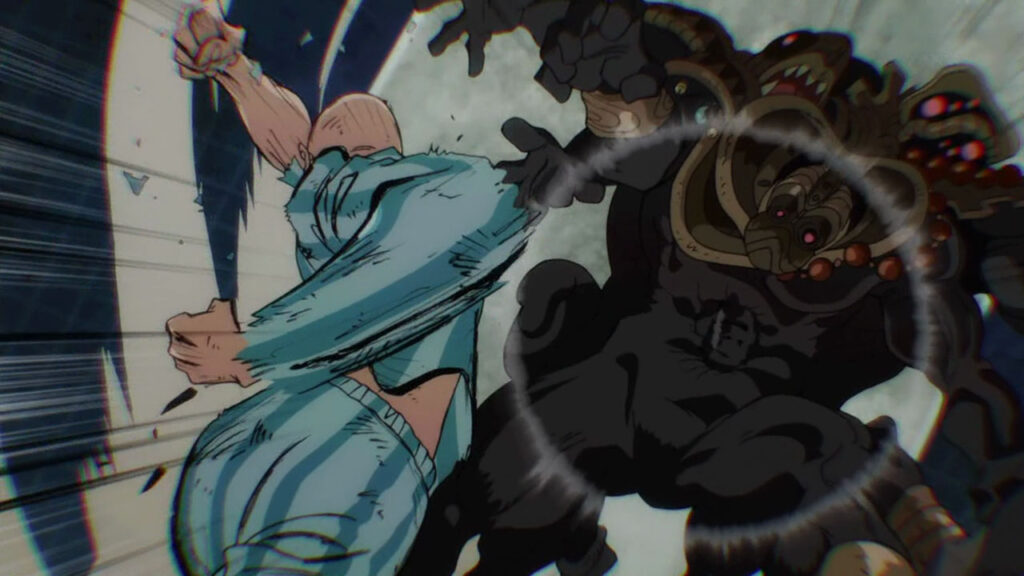
What kind of ridiculous backstory is that?
Created by the mysterious writer known only as ‘ONE’, this series started life as a webcomic (you can still [read the originals here](http://galaxyheavyblow.web.fc2.com/fc2-imageviewer/?aid=1&iid=2)), which was later remade as a weekly manga series illustrated by Yusuke Murata. The anime was later adapted by Madhouse, airing on TV in 2015, and whilst a second series has been confirmed, it was announced last month that a different production company and director would be taking over.
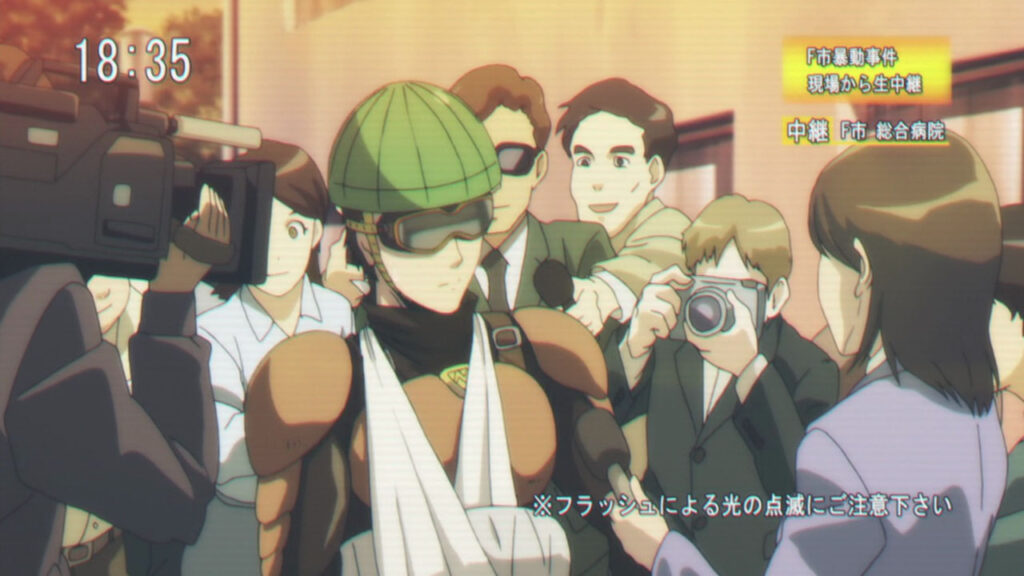
The series is essentially a parody of the costumed superhero genre.
The titular hero is overpowered beyond imagination; a super human force cranked up to 11. Even at the end of the first series, the limit of his abilities are still uncertain, as it feels like Saitama never really needs to put any degree of effort into surviving hostile encounters.
As a result of power coming so easily to him, Saitama lacks enthusiasm in his role as a hero. Because he doesn’t work hard to win a fight – something he literally dreams of doing, the act of fighting a villain isn’t enjoyable to him. Despite this, he works hard to increase his standing in the Hero Association, and tries to improve his public reputation.
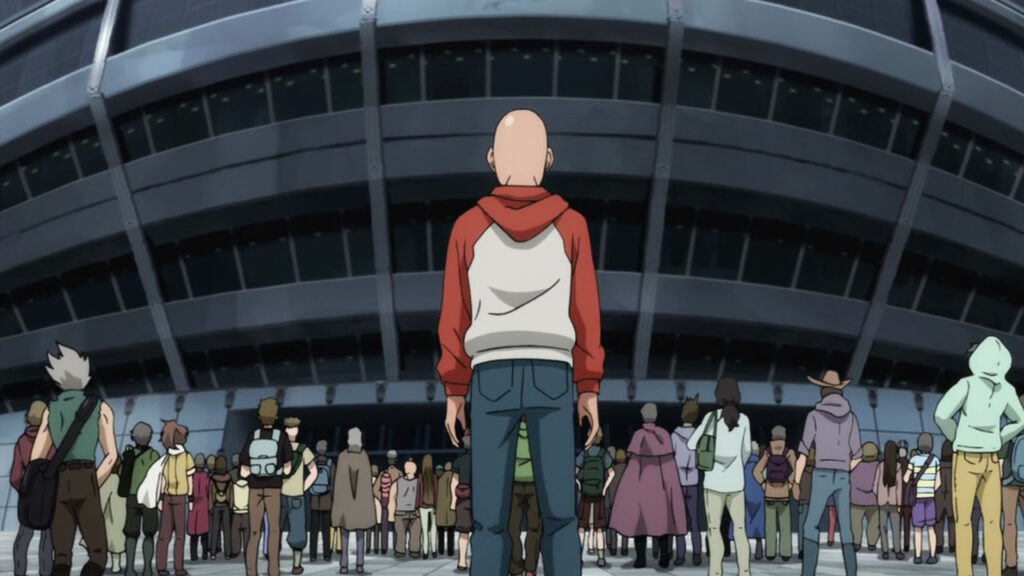
There are parallels drawn with modern society, where some individuals feel entitled to particular things, more so than other people, without working for them. Something which Saitama makes a point of mentioning is boring.
I guess the closest thing I could equate this to is working super hard to achieve something. When you see the finished result, you can’t help but admire how much effort you put into it. But the opposite comes from being handed something you desire – you can accept it, but can’t appreciate its full value.
And our hero is fully aware of this, causing him great frustration.
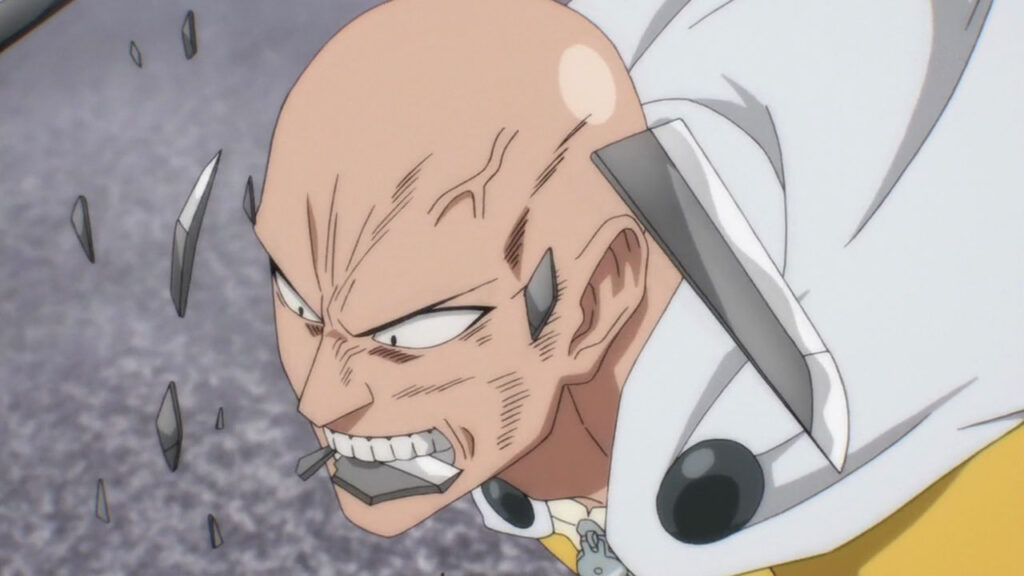
Typically, protagonist characters are more interesting when they overcome a trial, or personal conflict, so it’s a real achievement that this show has created such an compelling character in this happy-go-lucky guy, who for all intents is living an average lifestyle in modern day Japan.
As you’d expected with such powerful abilities, most fight sequences don’t last very long. As a result, the series tends to focus a lot more on character relationships and exploring moral and ethical dilemmas.
Thankfully, the series features a number of developed supporting characters, each with their own strengths and weaknesses. For the most part, these characters are here to contrast Saitama’s personality, and highlight his utter absurdity.
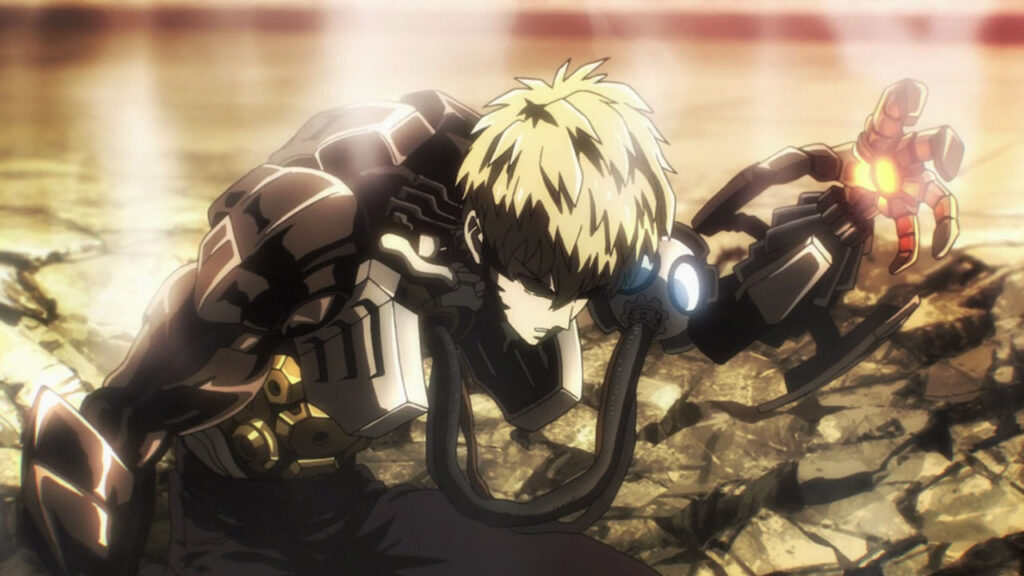
The character Genos for example has a host of cybernetic enhancements, and takes the role of hero very seriously. He has an encyclopaedic knowledge of his peers and what is expected of him as a superhuman. Although he seeks mentorship from Saitama, and infers wisdom from casual conversation, it is largely Genos – the sidekick, who drives narrates the situation to the viewer.
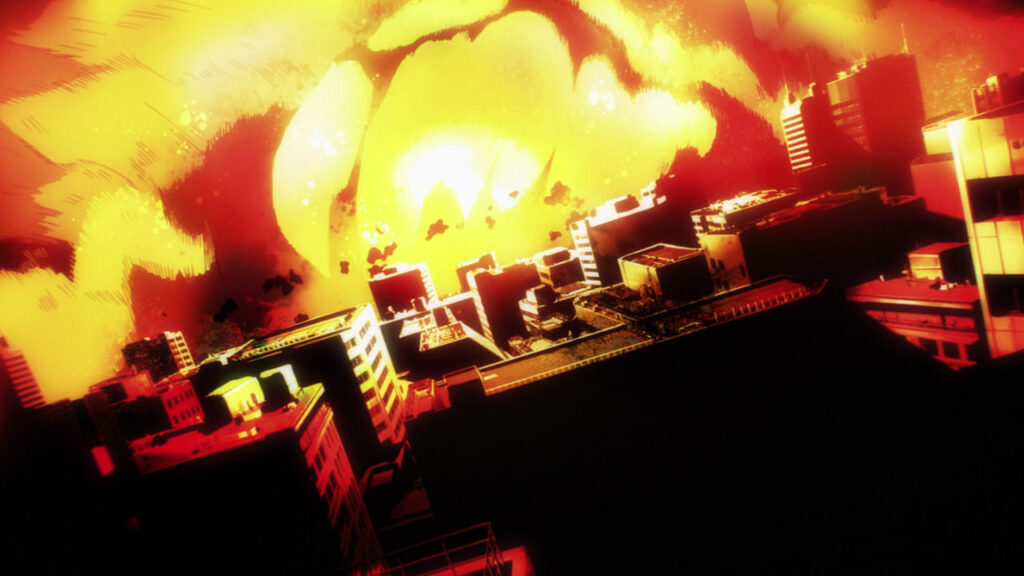
When confronted in battle, Genos doesn’t hold back, often damaging himself in the process. He proves himself willing to sacrifice his own life in order to defeat powerful opponents, though his angst filled inner-monologue is cut short by Saitama’s effortless intervention.
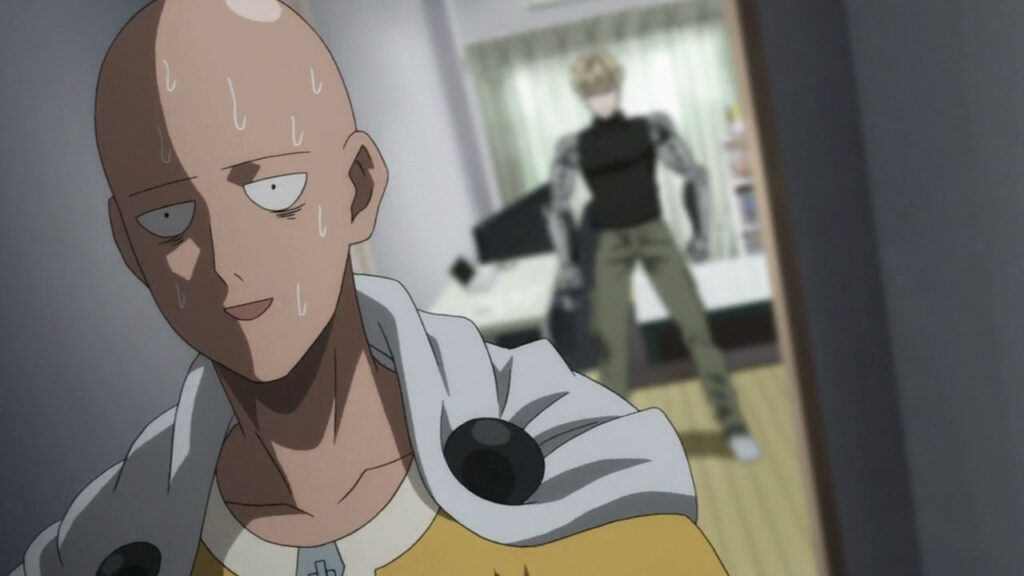
Moments like this break tension in a very lighthearted manner, and they’re a common occurrence.
It’s not just dialogue which changes the pacing either. Occasionally, elements of the original webcomic style creep into Madhouse’s incredible animation. This is a great way to interrupt a busy action sequence. Suddenly, fluid animation and sharp detail are swapped out for freehand doodles.
If you enjoy this, then definitely check out My Hero Academia. Mob Psycho 100, by the same creator, is similar also but parodies the supernatural genre.
I’m looking forward to the long awaited second series!
First published at Otaku News
